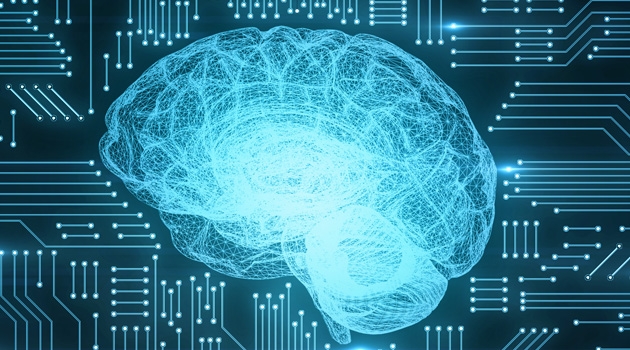Reducing the risk of students using AI to cheat
How can we prevent students from using AI in examinations? And should this new technology be prohibited? Mats Cullhed and Sonja Bjelobaba have been developing support and tips for teachers at Uppsala University. They predict that, while this technological advance will clearly place new demands on examiners, in the long term it may improve education.
Uppsala University was the first Swedish university to issue a warning to a student for using ChatGPT in an examination. It is probable that more students will use AI to assist them with take-home examinations and written assignments in future.
“It is by no means certain that the total amount of cheating will increase. What might happen is that cheating with AI will replace other types of cheating, such as copying from various sources,” says Mats Cullhed, an educational developer at Uppsala University who has prepared a page of tips and advice to help teachers at the University to get to grips with AI and examinations.
to detect cheating with AI, hence the importance of
working preventively. Photo: Sandra Gunnarsson
As cheating using ChatGPT and similar tools is so difficult to detect, the support document is primarily intended as an aid to prevention. According to Cullhed, this is a matter of both designing examinations and lectures in a way that makes it difficult to cheat and conveying an academic mindset that emphasises the importance of not taking shortcuts.
“Writing a text oneself, choosing the wording that makes it mine, that’s an incredibly important part of learning and one that falls by the wayside when one uses AI. If teachers can cultivate an academic culture from day one, and keep it alive throughout the study period, students will be less inclined to cheat,” says Cullhed.
Making it difficult for students to cheat
Network for Academic Integrity (ENAI), where the question
of AI is discussed in relation to academic integrity.
Photo: Maria Nilsson
Sonja Bjelobaba is an associate professor and a member of the reference group involved in developing the support document. She has a wealth of experience of preparing examinations that are sufficiently complex to make cheating difficult. These examinations are intended to be learning elements and have several steps. Among other things, students are asked to produce films, create their own grammar exercises, discuss various issues and oppose one another both orally and in writing.
“This is a formative assessment focused on the process rather than simply the result,” explains Bjelobaba, a senior lecturer in Serbian, Croatian and Bosnian at the Department of Modern Languages and a researcher at the Centre for Research Ethics & Bioethics.
When it comes to written assignments, she is careful to link them to something that has happened on the course, to her students’ own experiences or to texts that are not available online. This makes it difficult for students to use AI as an aid.
“As a teacher, it’s also much more enjoyable to read that type of answer rather than something that I could just as easily have come across on Wikipedia,” says Bjelobaba.
Cullhed is also a proponent of examining students in multiple ways. For example, by questioning a student in person about an assignment they have submitted, the teacher can assess whether the text in question actually formulates the student’s own thoughts.
How can teachers find the time
According to Cullhed, it is difficult to prepare a strategy that suits all courses. Multi-stage examination is easier in smaller groups. It is likely that AI will present more challenges on courses with many students.
“Perhaps it will be possible to see if resources can be redistributed so that feedback is given a more prominent role at the heart of teaching and examination,” says Cullhed.
“Every programme or subject must seek a reasonable solution. It is important that this is done collegially, rather than every teacher coming to their own conclusions. And that students are given the opportunity to express opinions on examination praxis as it develops.”
The potential to improve examinations and learning
Despite concerns, Cullhed also feels that it is important to focus on how teaching and examinations can be improved and coexist with the new technology.
“It’s a matter of reviewing examination praxis and improving the examinations themselves so that everyone benefits, not of making changes to catch out individual students.”
Bjelobaba sees no reason to be afraid of the new technology. On the contrary, she believes that tools such as ChatGPT will do a great deal of good.
“This can be a good thing for higher education, at least if we can integrate it into teaching and if it means that we have to look at examinations and really think about the best way to examine the intended learning outcomes of the course, and if we use formative assessment as an additional learning element.”
Sandra Gunnarsson
What is the University doing?
In mid-February, the University published information, advice and a number of specific proposals to address teachers’ immediate concerns. These pages were designed by the Unit for Academic Teaching and Learning, supported by a reference group consisting of management, teachers, researchers and students.
You can find the advice prepared by Mats Cullhed in consultation with the reference group here.
Broader, more positive and preventive work will begin during spring semester 2023, with the emphasis on pedagogy and strengthening the academic environment in the long term, as well as how AI can be productively used in teaching.

